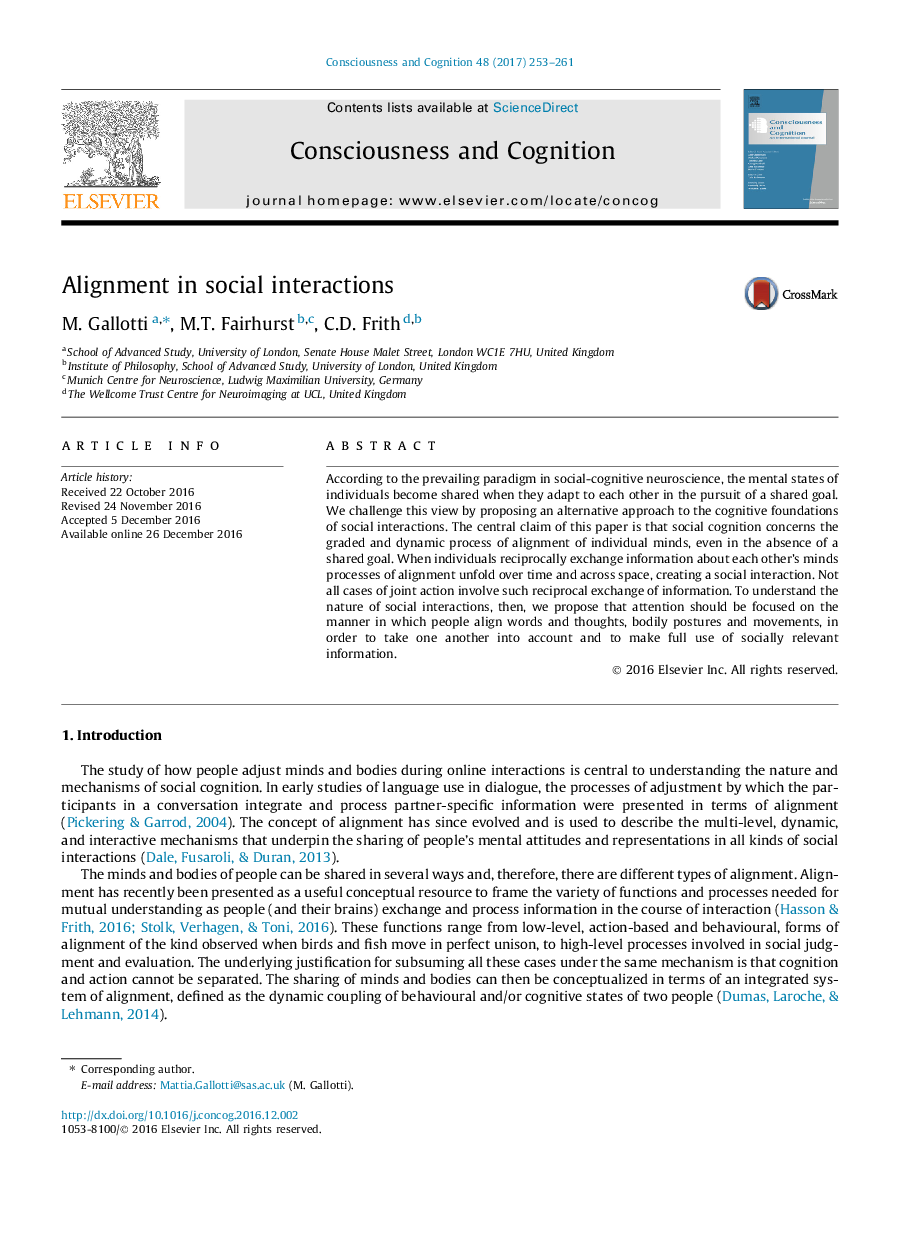| کد مقاله | کد نشریه | سال انتشار | مقاله انگلیسی | نسخه تمام متن |
|---|---|---|---|---|
| 5041910 | 1474163 | 2017 | 9 صفحه PDF | دانلود رایگان |
- A new approach to social cognition in terms of mental alignment is proposed.
- The dynamic and graded exchange of information between agents creates alignment.
- Not all forms of joint action in which the agents align will turn out to be social interactions.
- Shared goals are not needed for mutual alignment to occur.
- Two important theoretical developments follow from focusing on processes of mental alignment.
According to the prevailing paradigm in social-cognitive neuroscience, the mental states of individuals become shared when they adapt to each other in the pursuit of a shared goal. We challenge this view by proposing an alternative approach to the cognitive foundations of social interactions. The central claim of this paper is that social cognition concerns the graded and dynamic process of alignment of individual minds, even in the absence of a shared goal. When individuals reciprocally exchange information about each other's minds processes of alignment unfold over time and across space, creating a social interaction. Not all cases of joint action involve such reciprocal exchange of information. To understand the nature of social interactions, then, we propose that attention should be focused on the manner in which people align words and thoughts, bodily postures and movements, in order to take one another into account and to make full use of socially relevant information.
Journal: Consciousness and Cognition - Volume 48, February 2017, Pages 253-261
